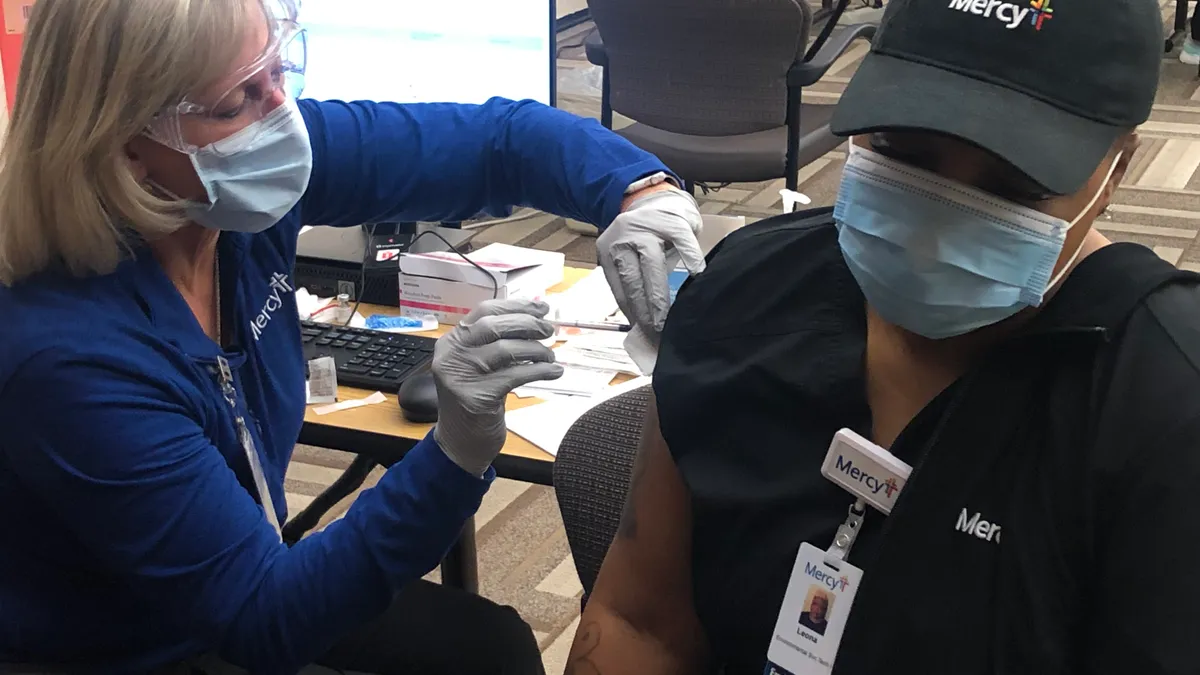Dive Brief:
- A nursing shortage, combined with the impacts of the COVID-19 pandemic, has "presented unique challenges" to learning professionals in the healthcare industry, according to a March 31 report from the Association for Talent Development.
- The pandemic forced healthcare organizations to change their training tactics, survey results indicated. For example, 90% of those surveyed said they moved instructor-based classes to online formats, while 83% postponed or canceled those classes altogether.
- Notably, only 15% of respondents reported that their organization is prepared for the nursing shortage -- and over three-quarters of respondents said the shortage is causing more hours worked, burnout and increased workload for nurses.
Dive Insight:
While burnout may look different across industries, it's an issue the pandemic has only exacerbated. Learning and development may be one way to help employees overcome it, studies have said.
The pandemic has particularly showcased the importance of resilience — a trait that can be developed, and is linked to lower burnout and anxiety, 2019 research from MeQuilibrium and the American Heart Association concluded.
"What resilience skills allow you to do is put [pressure] in perspective and really draw from a sense of purpose and meaning about the work that that you're doing and, in a very centered way, be able to absorb those challenges and respond to them creatively, flexibly and with cognitive agility,” Gabriella Rosen Kellerman, BetterUp's chief product officer, previously told HR Dive.
Employers can foster resilience by training managers and building a culture of recognition and support — in part by offering individuals time to do the things that matter to them. "At McKinsey, we're calling for businesses, including our own, to design a better mental health workplace — creating cultures and companies that foster healthy, empathetic environments," Liz Hilton Segel, managing partner of McKinsey & Company North America, previously told HR Dive. "The answer isn't straightforward or easy, but it's clear that now is the time to put people and their mental health at the center of business strategy."












